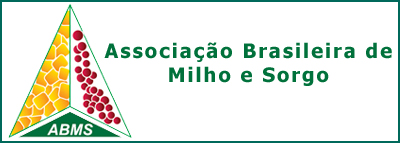EFFECT OF EXTRUSION ON ESSENTIAL AMINO ACIDS PROFILE AND COLOR OF WHOLE-GRAIN FLOURS OF QUALITY PROTEIN MAIZE (QPM) AND NORMAL MAIZE CULTIVARS
DOI:
https://doi.org/10.18512/1980-6477/rbms.v3n01p%25pPalavras-chave:
milho, cor.Resumo
Whole-grain flours of Quality Protein Maize (QPM) and normal maize were extruded under controlled conditions in order to evaluate the effect of extrusion on the essential amino acids profile and color of the raw material used in the production of maize based extrudates. Flours were conditioned to 150g/kg moisture and processed in a single screw extruder at a screw compression ratio of 3:1, screw speed of 80 rpm, and die head temperature of 1300C, using two different die nozzle diameters (3 and 5 mm). Extrusion caused a diminishment in the contents of the essential amino acids isoleucine, leucine, lysine, threonine and valine when compared to their original flours (P< 0.05). But, the contents of histidine, methionine, phenylalanine and tryptophan were not different for flours and extrudates of the same source (P> 0.05).QPM samples, either raw or extruded, were significantly higher in lysine, methionine and tryptophan compared to samples of normal maize (P< 0.05). Extrudates produced with yellow QPM flours were lighter than their correspondent raw material (P< 0.05) , different from that of yellow normal maize. This trend was also observed for redness (a values) in extrudates. On the other hand, white and yellow extrudates presented higher b values (yellowness) than their correspond raw flour. Despite the adverse effect of extrusion in the amino acid retention, the use of QPM flours in replacement of normal maize flours can provide maize extrudates with superior protein quality.
Downloads
Publicado
Como Citar
Edição
Seção
Licença
Autores que publicam nesta revista concordam com os seguintes termos:- Autores mantém os direitos autorais e concedem à revista o direito de primeira publicação, com o trabalho simultaneamente licenciado sob a Creative Commons Attribution License que permitindo o compartilhamento do trabalho com reconhecimento da autoria do trabalho e publicação inicial nesta revista.
- Autores têm autorização para assumir contratos adicionais separadamente, para distribuição não-exclusiva da versão do trabalho publicada nesta revista (ex.: publicar em repositório institucional ou como capítulo de livro), com reconhecimento de autoria e publicação inicial nesta revista.
- Autores têm permissão e são estimulados a publicar e distribuir seu trabalho online (ex.: em repositórios institucionais ou na sua página pessoal) a qualquer ponto antes ou durante o processo editorial, já que isso pode gerar alterações produtivas, bem como aumentar o impacto e a citação do trabalho publicado



